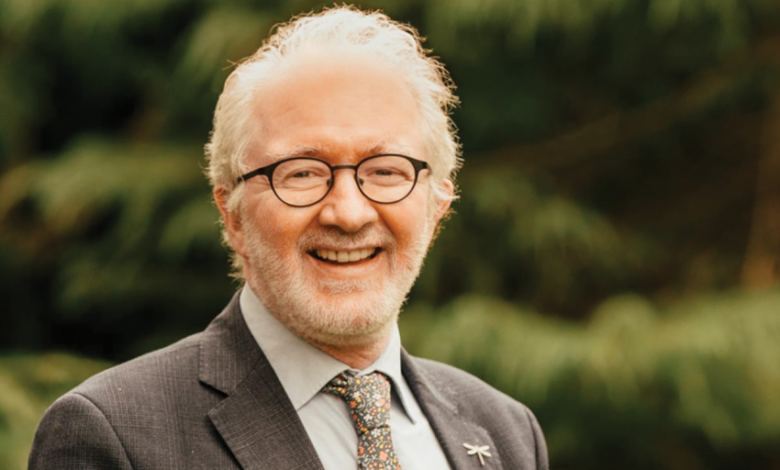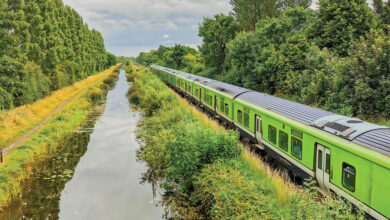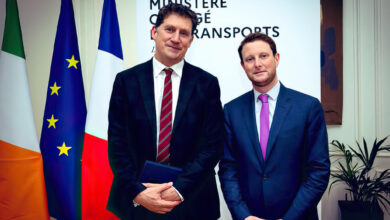Fixing water quality in Ireland: ‘Cooperation not conflict’

Everyone, rural and urban, needs clean water to drink, to produce food, to support our livelihoods and for recreation. Conflict will only further delay action, writes Minister of State at the Department of Housing, Local Government and Heritage Malcolm Noonan TD.
Water is the great connector. Our water resources and waterways link human society directly with the condition of our land, to the state of our biodiversity and to the impacts of climate change. Managed efficiently, water can play a key role in strengthening the resilience of social, economic, and environmental systems.
We have well-documented problems in Ireland’s water bodies. In the most recent national water quality assessment by the EPA, almost half (46 per cent) of Ireland’s waterbodies were found to be below good status. The principle causes of these challenges in water quality are the losses into water of excess nutrients (nitrogen and phosphorous) from farmland and inadequately treated wastewater, causing harm to ecosystems. We are also witnessing climate change having a direct impact on water: from water scarcity and droughts to the disruption of rainfall patterns that contribute to high-intensity localised rainfall.
The UN Water Conference has brought a renewed focus on water to the international stage. Here in Ireland, the recent report from the Citizen’s Assembly on Biodiversity included many recommendations on water. To act on the Citizens’ Assembly recommendations, I firmly believe that we need to focus on collaboration and not on conflict. Too often, the default response to a problem highlighted is denial, distraction, or deflection. Some try to pit rural against urban dweller – farmer against environmentalist. This conflict is a false narrative – we all need clean water.
Most recently, we have seen the discussion on the introduction of the EU Nature Restoration Law, and in particular the subject of rewetting, show us how divisive the debate can be. We cannot have good agricultural production without healthy nature and clean water, we cannot restore nature without the cooperation of our farmers, and we cannot feed people without the sustainable productive use of our land.
“Without the implementation of substantial measures to address the impacts of agriculture, it is unlikely that Ireland will achieve significant progress in delivering good water quality status for all its waterbodies in the longer term.”
Minister of State at the Department of Housing, Local Government and Heritage Malcolm Noonan TD
Neither can we shy away from the challenge of meeting our obligations to protect and restore water quality. In Ireland, we have significant challenges: the resilience of our water supplies, the loss of high-status water bodies, nutrient pollution and restoring the natural functions of our rivers for biodiversity and flood protection.
It is imperative that we put ourselves on a sustainable pathway for water management. To address these many challenges we need to work harder to integrate our responses to water, climate change and biodiversity loss across all policy areas and across public agencies and authorities. The proposed national statement of environment policy due to be published by the end of 2023 will result in better coordination between the different environmental policy areas and a more effective implementation process.
The Programme for Government has committed to funding Uisce Éireann’s capital investment plan for drinking water and wastewater infrastructure. The National Development Plan commits almost €6 billion capital investment by Uisce Éireann from 2021 to 2025. In Budget 2023 alone almost €1.6 billion of funding was made available to Uisce Éireann. This investment will deliver significant improvements in our public water and wastewater services, support improved water supplies right across urban and rural Ireland, and deliver improved water quality.
A revised and strengthened River Basin Management Plan, which covers the third cycle of river basin planning for Ireland up to 2027, will be soon launched to help address these issues. We are drafting this next plan, drawing on a collaborative approach between all stakeholders. This has been made possible through An Fóram Uisce – the national water stakeholder forum.
Using the integrated catchment management approach, backed up with a strong programme of measures, it will identify the main pressures on our water status and set the environmental objectives to protect and restore our water bodies, with the identification and implementation of ‘the right measure, in the right place’ being the central driver of the Plan.
We will seek to address the impacts from agricultural through a balance of engagement, education, and knowledge, such as through the expansion of the Agricultural Sustainability Support and Advisory Programme (ASSAP), the Agri-Climate Rural Environment Scheme (ACRES), alongside enhanced inspection and enforcement requirements.
The new Nitrates Action Programme includes stronger measures to reduce nutrient losses, to improve water quality and will work with the new CAP Strategic Plan which has brought eco-system protection and environmental management to the fore.
Measures introduced include tighter controls on the application of chemical fertilizers and slurry, stronger emphasis on risk-based inspections and enforcement, with up to 16,000 farm inspections to be undertaken by local authorities during the lifetime of the plan, and an industry-led initiative to reduce agricultural impacts on water quality.
Without the implementation of substantial measures to address the impacts of agriculture, it is unlikely that Ireland will achieve significant progress in delivering good water quality status for all its waterbodies in the longer term.
Another significant measure to help address water quality is the recently launched Water European Innovation Partnership (EIP) project. The initiative is co-funded by my department and will invest funding of €60 million in farms over five years. This project is specifically focused on reducing losses of phosphorus, nitrogen, sediment, and, where relevant, pesticides to water from agricultural lands by promoting the adoption of innovative best practice in nutrient management, such as the application of nature-based natural water retention measures (NWRM).
In urban areas, the plan will see the development of a new strategy for the implementation of nature-based solutions at a national scale to address the pressures from urban runoff, such as increased rainfall patterns due to climate change. A pilot project with Cork and Dublin city councils commenced in 2022 to investigate how nature-based solutions can be used to address urban run-off pressures.
In the meantime, an interim high-level guidance document has been finalised to assist planning authorities with implementing nature-based solutions as part of ongoing new development.
Through initiatives like An Fóram Uisce and ASSAP, the Government is engaging directly with water stakeholders and our focus will continue to be problem solving based on a collaborative approach.
Water is at the heart of adaptation to climate change and is the crucial link between the climate system, human society, and the environment. Managed efficiently, water can play a key role in strengthening the resilience of social, economic, and environmental systems.





